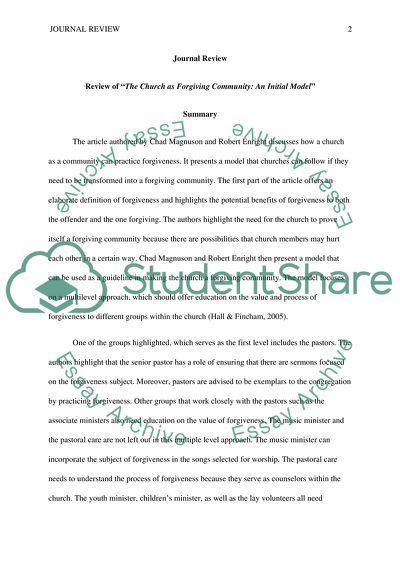Cite this document
(The Church as Forgiving Community by Chad Magnuson and Robert Enright Literature review Example | Topics and Well Written Essays - 1750 words, n.d.)
The Church as Forgiving Community by Chad Magnuson and Robert Enright Literature review Example | Topics and Well Written Essays - 1750 words. https://studentshare.org/religion-and-theology/1843962-coun-506-journal-review-12
The Church as Forgiving Community by Chad Magnuson and Robert Enright Literature review Example | Topics and Well Written Essays - 1750 words. https://studentshare.org/religion-and-theology/1843962-coun-506-journal-review-12
(The Church As Forgiving Community by Chad Magnuson and Robert Enright Literature Review Example | Topics and Well Written Essays - 1750 Words)
The Church As Forgiving Community by Chad Magnuson and Robert Enright Literature Review Example | Topics and Well Written Essays - 1750 Words. https://studentshare.org/religion-and-theology/1843962-coun-506-journal-review-12.
The Church As Forgiving Community by Chad Magnuson and Robert Enright Literature Review Example | Topics and Well Written Essays - 1750 Words. https://studentshare.org/religion-and-theology/1843962-coun-506-journal-review-12.
“The Church As Forgiving Community by Chad Magnuson and Robert Enright Literature Review Example | Topics and Well Written Essays - 1750 Words”. https://studentshare.org/religion-and-theology/1843962-coun-506-journal-review-12.


